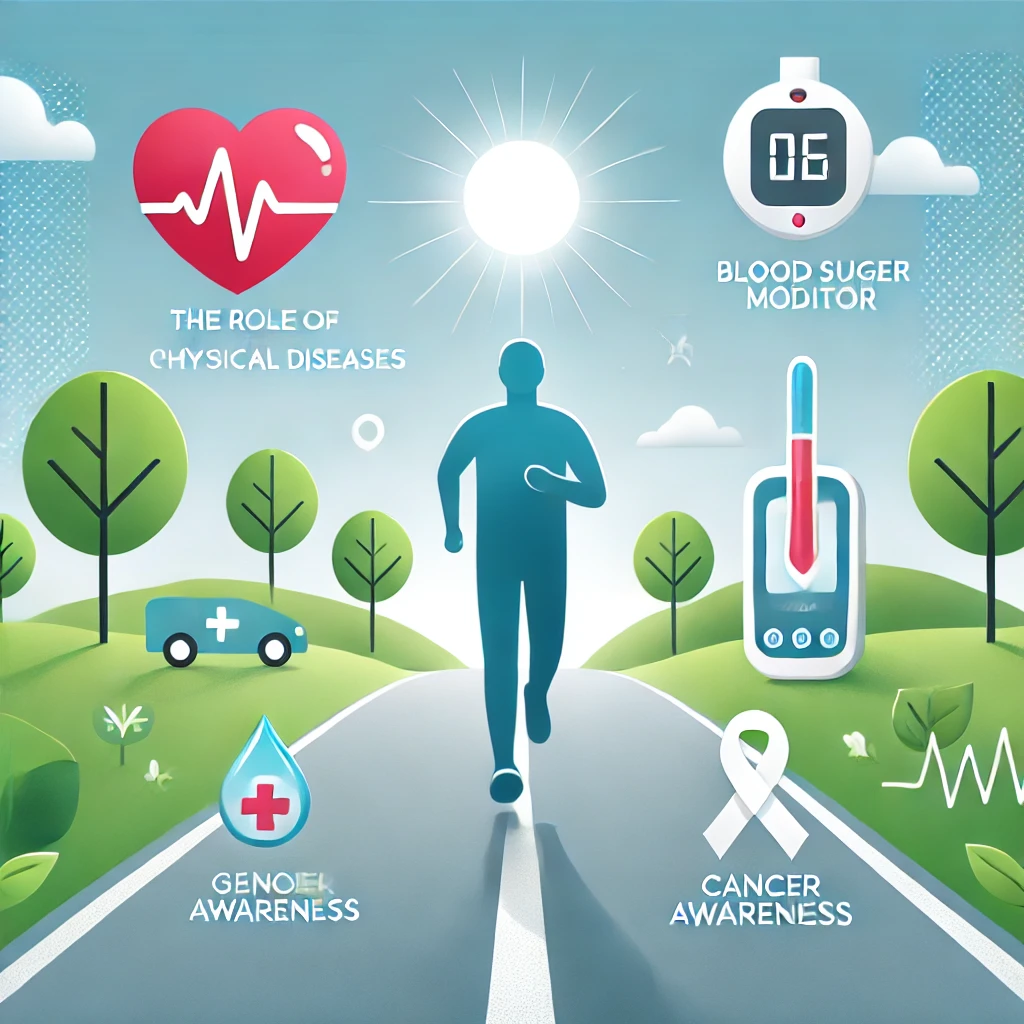Physical activity is one of the most effective ways to prevent chronic diseases and improve overall health. Engaging in regular exercise not only helps in maintaining a healthy weight but also reduces the risk of developing various chronic conditions such as heart disease, diabetes, cancer, and respiratory diseases. Additionally, physical activity plays a crucial role in enhancing mental well-being. This article explores how consistent physical activity can contribute to disease prevention and overall health improvement.
Physical Activity and Heart Health:
Regular physical activity is vital for maintaining heart health. It strengthens the heart muscle, improves blood circulation, and helps manage risk factors such as high blood pressure and cholesterol. Exercise reduces the likelihood of heart disease by promoting a healthy weight and improving the efficiency of the cardiovascular system.
Prevention and Management of Diabetes:
Exercise is essential in regulating blood sugar levels and improving insulin sensitivity. For individuals at risk of developing Type 2 diabetes, regular physical activity can be a powerful preventive measure. It helps in controlling body weight and reduces the risk of obesity, a significant factor contributing to diabetes.
Cancer Risk Reduction:
Engaging in physical activity has been linked to a reduced risk of several types of cancer, including breast, colon, and lung cancer. Exercise helps in regulating hormones and improving immune function, both of which are crucial in cancer prevention. By maintaining a healthy weight and reducing inflammation, physical activity acts as a protective factor against cancer.
Improving Respiratory Health:
Physical activity enhances lung capacity and strengthens the muscles involved in breathing. This leads to improved respiratory function and a reduced risk of developing chronic respiratory conditions such as chronic obstructive pulmonary disease (COPD) and asthma. Regular exercise also helps in managing symptoms in individuals who already have respiratory issues.
Mental Health Benefits:
Beyond its physical benefits, exercise is also known to improve mental health. Regular physical activity reduces symptoms of depression, anxiety, and stress, while also boosting cognitive function and overall mood. The positive effects of exercise on brain health are profound, making it an essential component of mental well-being.
Developing a Consistent Exercise Routine:
To reap the benefits of physical activity, it’s important to establish a consistent exercise routine. This can include a mix of aerobic exercises, strength training, and flexibility exercises. The key is to find activities that are enjoyable and sustainable, making it easier to incorporate them into daily life.
Conclusion:
Physical activity is a powerful tool for preventing chronic diseases and promoting overall health. By integrating regular exercise into your lifestyle, you can significantly reduce the risk of heart disease, diabetes, cancer, and respiratory diseases, while also improving your mental health. The long-term benefits of physical activity make it an indispensable part of a healthy lifestyle.
Hashtags: #PhysicalActivity #ChronicDiseasePrevention #ExerciseForHealth #MentalHealth #Wellness #HealthEducation #PublicHealth
Sources:
- Paffenbarger, R. S., & Hyde, R. T. (1984). Physical activity and cardiovascular health. Journal of the American College of Cardiology, 3(1), 126-136.
- Hu, F. B., Manson, J. E., & Stampfer, M. J. (2001). Diet, lifestyle, and the risk of type 2 diabetes mellitus in women. Diabetes Care, 24(4), 490-498.
- Lee, I. M., & Paffenbarger, R. S. (1994). Physical activity and its relation to cancer risk: A review. Cancer Causes & Control, 5(5), 487-495.
- Garcia-Aymerich, J., Lange, P., Benet, M., Schnohr, P., & Anto, J. M. (2006). Regular physical activity modifies smoking-related lung function decline and reduces risk of chronic obstructive pulmonary disease: A population-based cohort study. American Journal of Respiratory and Critical Care Medicine, 173(5), 506-512.
- Ratey, J. J., & Hagerman, E. (2008). Spark: The Revolutionary New Science of Exercise and the Brain. Little, Brown Spark.
- Warburton, D. E., Nicol, C. W., & Bredin, S. S. (2006). Health benefits of physical activity: The evidence. Canadian Medical Association Journal, 174(6), 801-809.
